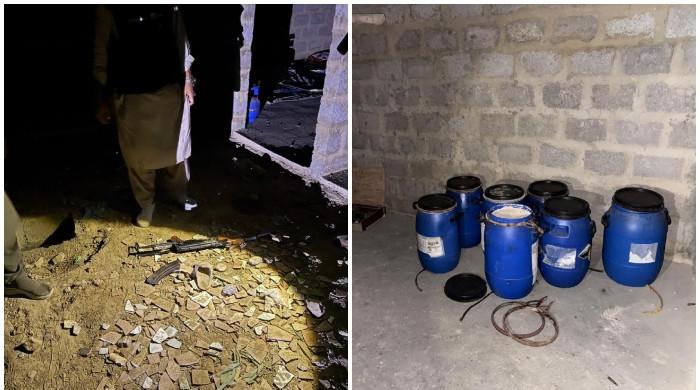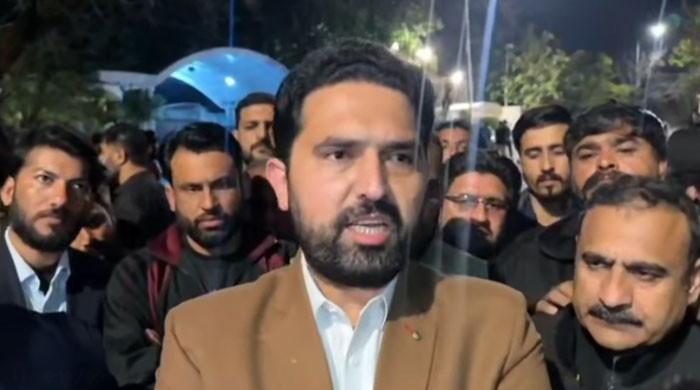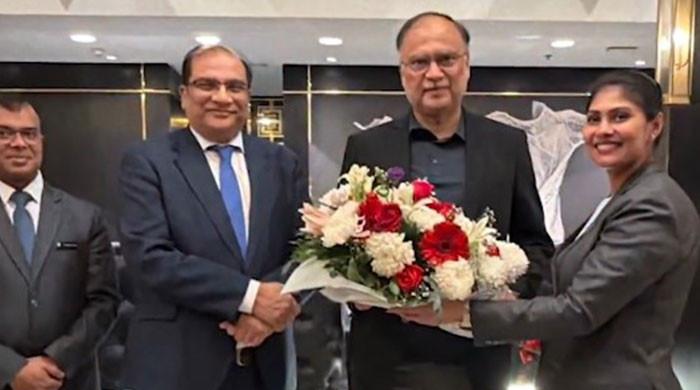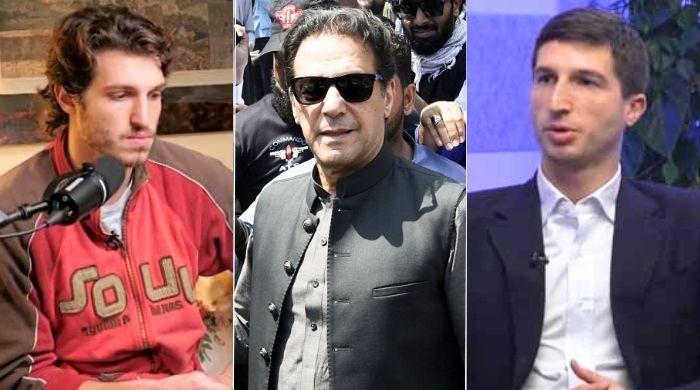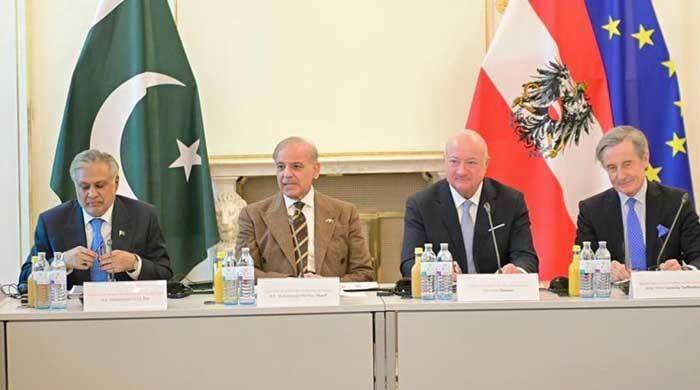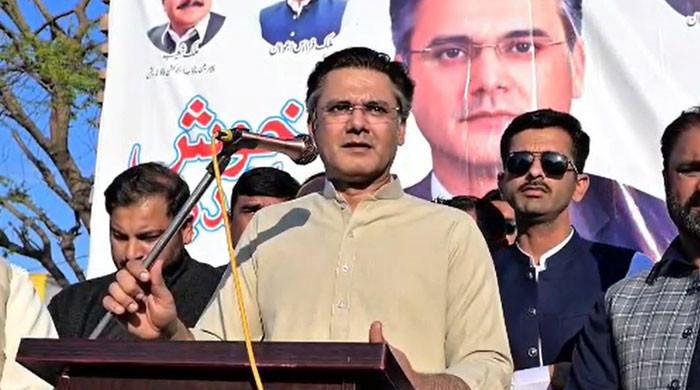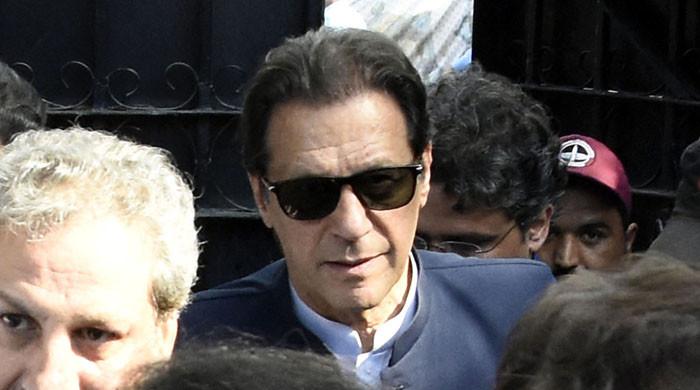General Bajwa extension: Govt lacks majority in Senate for necessary legislation
PPP's Kaira says opposition has never picked up any issue with any govt effort to engage in talks on serious matters
November 29, 2019
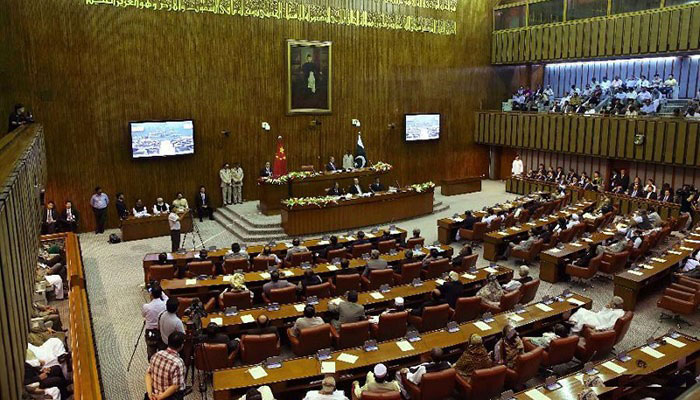
ISLAMABAD: Meaningful talks may be held between the government and opposition parties to get parliamentary approval of the impending amendments in the Constitution and the Army Act to erase ambiguities relating to the reappointment/extension of chief of army staff.
“We are open for discussion and will closely see what the ruling alliance will propose,” a senior Pakistan Muslim League-Nawaz (PML-N) leader told The News. “We have always stressed that the government should engage in serious deliberations to make laws.”
However, he said the track record of the ruling coalition reflects that it shuns any worthwhile dialogue with the opposition. The latest example, he pointed out, emerged when it bulldozed 11 ordinances through the National Assembly in one go within a few minutes, but later, it had to agree with the opposition to undo their approval in exchange for withdrawal of a no-confidence motion against Deputy Speaker Qasim Suri.
The ruling alliance does not have numerical strength to make or amend even an ordinary law like the Army Act because a simple majority is required in both the Senate and the National Assembly. It can pass such changes in the National Assembly where it has a majority but lacks it in the Senate.
In the case of the prospective amendment to Article 243, the ruling coalition does not have a two-thirds majority in either parliamentary chamber. In both kinds of legislation, the opposition parties’ support would be a must.
Senior Pakistan People’s Party (PPP) leader Qamar Zaman Kaira said the opposition has never picked up any issue with any government effort to engage in talks on serious matters.
“It depends on the attitude and approach of the government. But a hard fact is that the ruling side has never shown any seriousness on any national problem,” he said.
Kaira said there was no instance when the opposition parties showed lack of sincerity. However, he said the government would divert its attention to resolve the real issues only when it will spare time from victimizing a large number of opposition leaders.
Two aggressive tweets posted by Prime Minister Imran Khan spoke his mind once again especially his policy vis-à-vis the opposition.
“Mafias who have stashed their loot abroad and seek to protect this loot by destabilising the country. Today must be a great disappointment to those who expected the country to be destabilised by a clash of institutions. That this did not happen must be of special disappointment to our external enemies and mafias within,” the prime minister had tweeted.
When he mentioned mafias, he always meant Sharifs, Zardaris and all of his arch political rivals. In view of reiteration of his opinion, it is anybody’s guess how the talks between the government and opposition start on fresh amendments. It is clear that the opposition is unlikely to race towards the government in order to extend support.
The main talking from the government side on the imminent amendments is likely to done by former law minister Dr Farogh Naseem and Attorney General of Pakistan Anwar Mansoor Khan with the opposition, an effort which will certainly need political backup of the government particularly the prime minister.
Article 243 of the Constitution, which deals with the “command of armed forces”, will be changed as in the light of the Supreme Court verdict. It says the federal government shall have control and command of the Armed Forces. Without prejudice to the generality of the foregoing provision, the Supreme Command of the Armed Forces shall vest in the president.
The president shall, subject to law, have power to raise and maintain the Military, Naval and Air Forces of Pakistan; and the Reserves of such Forces; and to grant Commissions in such Forces. The president shall, on advice of the prime minister, appoint the Chairman, Joint Chiefs of Staff Committee; the Chief of the Army Staff; the Chief of the Naval Staff; and the Chief of the Air Staff, and shall also determine their salaries and allowances.
“There had been instances when even constitutional amendments were unanimously passed by parliament within no time simply because a consensus was worked out between the two sides before tabling them in the legislature,” the PML-N leader said and referred to the passage of the eighteenth amendment, undoing of the eighth amendment and another amendment arming the military courts with powers to try civilians accused of grave terrorism.
He said that all this was easily done in the wake of a working relationship between the government and the opposition and existence of an environment for such sensitive task. The present regime, he said, has to fundamentally change its approach and style of working, otherwise, no legislation whatsoever can be done as has been the case over the past 16 months during which parliament has been idle.
The six months’ time given by the apex court to make suitable amendments to the law and Constitution is more than enough to do the needful.
Originally published in The News




